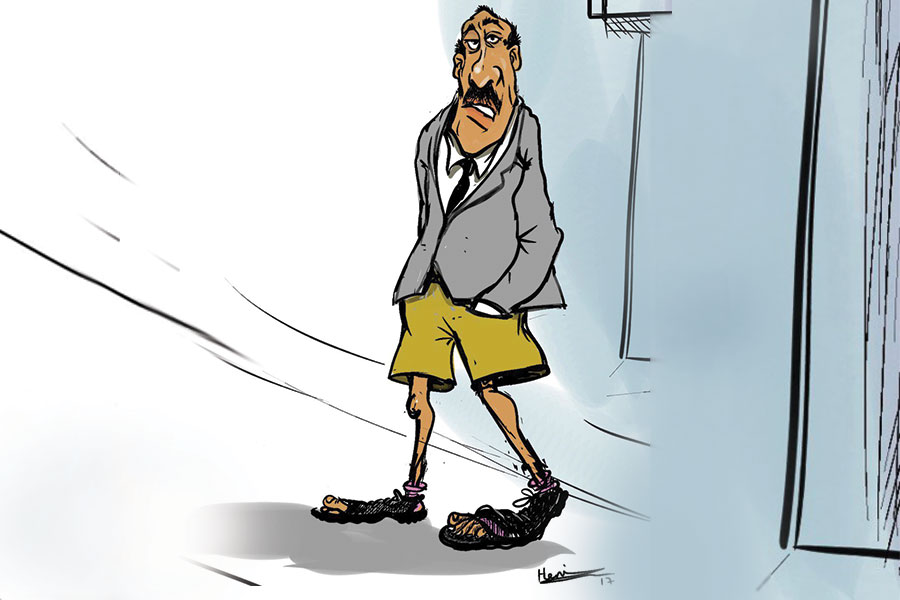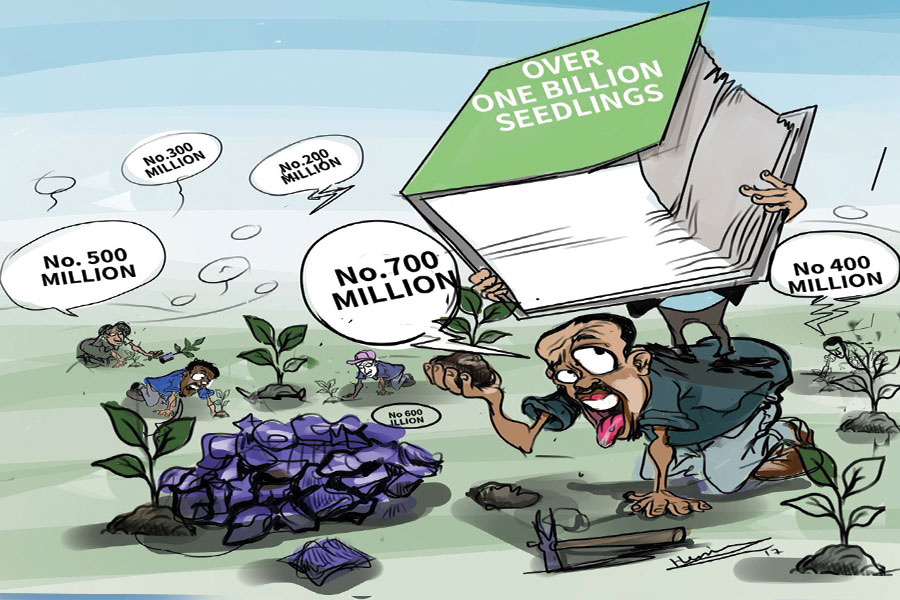
Jun 21 , 2025. By BEREKET BALCHA ( Fortune Staff Writer )
From the moment I landed at Narita International Airport, people bowed deeply, offered help without hesitation, and made sure visitors felt seen. In Japan, strangers go out of their way to assist, even overcoming language barriers with apps that transcribe and translate in real time. Such behavior reveals a national moral compass. Civilization is not just skyscrapers and smartphones; it is, above all, a matter of manners.
As we walked down the road from Mexico (then Maychew Square) to AU (then OAU), the four of us munched on what we called Nechu Qolo, properly called Shimbra Dube, bought from Mebrat Hayl recreation center. Thousands queued in the Bingo hall there, eyes glued to cards as winning numbers were called. Vendors selling qolo, chewing gum, and lewz (peanuts) swarmed the gates, catering to the players.
A familiar argument erupted among us over whether to take our "wuyiyit" taxi or spend the transport money on the delicious snack. My classmate Binyam Bisrat and I always voted for the snack. My younger brothers Abiy and Tewodros Balcha preferred the taxi.
As Berhanu Tezera once sang in his folk ballad you cannot get Shimbra Dube on credit. It was a snack paid for in hard choices. Buying the Qolo meant walking, and we elders had the burden of persuasion. We usually succeeded.
Binyam would eventually turn toward Bulgaria Mazoria, and the rest of us would climb the steep road to Sar Bet and the Vatican Embassy. Along the way, we would pass the makeshift football field, where I once saw national hero Mulugeta Kebede play joyfully with neighborhood kids. That alone made the long walk worth it.
Every evening at six, we would be stopped at the gate of the nearby military warehouse. The soldiers would lower the Ethiopian flag with solemn reverence. Their stern faces taught us patriotism without uttering a word. It left a lasting impression on what it meant to love your country.
Discipline and respect were daily rituals, not abstractions. At our church school, we lined up each morning, said the Lord’s Prayer, and sang the national anthem. On the streets, every adult became a surrogate parent. They would correct, scold, or even tap you on the wrist if you strayed, followed by the ever-familiar, "Boy, where are your manners?"
Social etiquette was not taught as a theory; it was modeled everywhere. Bowing to elders, using two hands to greet, and modestly refusing food out of politeness were part of daily life. Manners were not special; they were expected. Elders would bless well-behaved youth, and affection was a given, not a gesture.
It is easy to romanticize the past, but those norms of decency were real. I did not fully grasp how much they had eroded in our society until I visited Japan last December. From the moment I landed at Narita International Airport, people bowed deeply, offered help without hesitation, and made sure visitors felt seen.
In Japan, strangers go out of their way to assist, even overcoming language barriers with apps that transcribe and translate in real time. If you lose your phone on a Tokyo train, it will likely be turned to the lost-and-found. Such behavior reveals a national moral compass. Goethe once said, “A man's manners are a mirror in which he shows his portrait.” Japan reflects its best self.
Contrast this with what I saw back home. In one spa, someone left their wet slippers on a shared stool despite ample floor space nearby. Was it thoughtlessness or spite? Either way, it denied others comfort. I have seen running taps left open in public restrooms, common spaces blocked as if privately owned, and even cars abandoned mid-road while their owners drink and dance nearby.
One night, a narrow one-lane road became a traffic nightmare because a group parked their 4WD right in the middle and refused to move. No one dared confront them. Their leisure mattered more than the needs of a dozen drivers trying to pass. It was both stunning and deeply disappointing.
Even in the men's bathroom, basic decency is rare. I once saw a young man flush the urinal, a rare act, and thanked him. He shyly nodded, silently acknowledging our shared dismay. Others routinely urinate on seats without lifting the lid or even flushing. It is not about privacy. It is about carelessness.
Then there is the culture of public rudeness. People stare at strangers for an extended period or even until out of sight without shame and for no apparent reason. Motorists ignore right-of-way. Queue-cutting is rampant. Worst of all, public urination, especially by taxi drivers, remains common. Some even urinate on their car wheels as if marking territory. Animals do so with biological purpose. Humans, in this case, have no such excuse.
A friend once visited Singapore and casually tossed a gum wrapper on the pavement. A Porsche driver stopped, picked it up, disposed of it properly, and left without a word. His silence said more than scolding could. "Didn’t your parents teach you any manners?" was written all over that act.
In our part of the world, where acts like vandalism or public indecency are barely frowned upon, it was a revelation. But we are slowly changing. Decency and development are not at odds. In fact, old-fashioned manners often support modernity.
That is why, in Japan, even the samurai, clad in kimono, katana in hand, sandal-footed and hair in a topknot, waits his turn to board the train, avoids staring, and keeps to his phone on silent. Civilization is not just skyscrapers and smartphones; it is, above all, a matter of manners.
PUBLISHED ON
Jun 21,2025 [ VOL
26 , NO
1312]

Photo Gallery | 139538 Views | May 06,2019

My Opinion | 134029 Views | Aug 14,2021

My Opinion | 130582 Views | Aug 21,2021

Photo Gallery | 129796 Views | Apr 26,2019

Aug 23 , 2025
Banks have a new obsession. After decades chasing deposits and, more recently, digita...

Aug 16 , 2025
A decade ago, a case in the United States (US) jolted Wall Street. An ambulance opera...

Aug 9 , 2025
In the 14th Century, the Egyptian scholar Ibn Khaldun drew a neat curve in the sand....

Aug 2 , 2025
At daybreak on Thursday last week, July 31, 2025, hundreds of thousands of Ethiop...